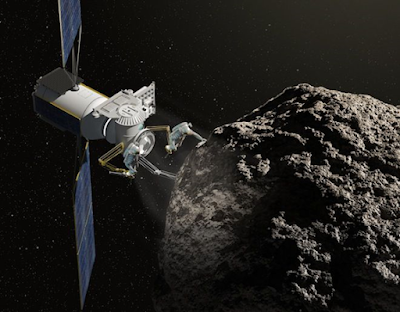Space exploration has come a long way since the days of the Apollo missions. Over the past few decades, we have sent probes to explore our neighboring planets, deployed telescopes to study the cosmos, and even sent humans to live aboard the International Space Station (ISS). In this article, we will examine some of the exciting developments and challenges that lie ahead as we enter a new era of space exploration.
The Growing Importance of Space Exploration
Space exploration has become increasingly important for several reasons. One of the primary reasons is scientific discovery. Space exploration has allowed us to learn more about our planet and the universe, including the origins of life, the formation of galaxies, and the nature of black holes. In addition, space exploration has helped us to develop new technologies and materials, such as advanced computers, satellite communications, and lightweight alloys.
Space exploration also has significant economic benefits.
It has led to the creation of numerous jobs and industries, from rocket manufacturers and satellite operators to space tourism companies. Furthermore, the knowledge and technologies developed through space exploration have led to many spin-off applications in fields such as medicine, transportation, and energy.
The Challenges of Space Exploration
While space exploration holds great promise, it also presents significant challenges. The main challenge is the cost. Space exploration is a very expensive endeavor, and it requires significant funding from governments and private organizations. Space travel is inherently dangerous, and accidents can have catastrophic consequences.
Furthermore, the harsh conditions of space, such as extreme temperatures, radiation, and microgravity, pose additional challenges for human exploration. The accumulation of space debris, such as spent rocket stages and broken satellites, poses a significant risk to both spacecraft and astronauts.
The Future of Space Exploration
Mars Exploration
One of the most ambitious goals for space exploration in the coming decades is the exploration of Mars. NASA plans to launch the Mars Sample Return mission in 2026, which will collect samples from the Martian surface and return them to Earth for analysis. In addition, private companies such as SpaceX and Blue Origin are developing spacecraft and technologies to support human exploration of Mars.
Lunar Exploration
NASA plans to establish a permanent human presence on the moon by the end of the decade, through the Artemis program. Private companies such as Blue Origin and SpaceX also have plans to send humans to the moon shortly.
Space Tourism
Space tourism is another emerging industry in space exploration. Private companies such as Virgin Galactic and Blue Origin are developing spacecraft to offer suborbital spaceflights to paying customers. In addition, the ISS has been opened up to private citizens for short-term stays, through partnerships with companies such as Axiom Space.
Asteroid Mining
Asteroid mining is another promising area of space exploration. Asteroids contain valuable resources such as water, metals, and rare earth elements, which could be used to support space exploration and even benefit Earth. Companies such as Planetary Resources and Deep Space Industries are developing technologies to extract these resources from asteroids.
Space Debris Cleanup
Finally, the issue of space debris is being addressed through various initiatives to clean up the debris and prevent future debris from accumulating. For example, the European Space Agency's Clean Space initiative is developing technologies to remove space debris from orbit. In addition, some companies are exploring the use of satellite servicing spacecraft to repair or remove broken satellites.
Interstellar Exploration
While the focus of space exploration shortly is on our own solar system, there is growing interest in exploring beyond it. The Breakthrough star shot initiative, for example, aims to send tiny spacecraft to the nearest star system, Alpha Centauri, at speeds of up to 20% the speed of light. While this technology is still in development, it represents a potential pathway to interstellar exploration in the future.
In a Nutshell
The future of space exploration is filled with challenges and opportunities, but one thing is certain: it will require bold and innovative thinking to push the boundaries of what is possible. With the growing interest and investment in space exploration from both governments and private companies, we can expect to see significant advancements in the coming years.
Whether it's exploring Mars, establishing a permanent human presence on the moon, or developing new technologies to address the challenges of space debris and microgravity, the future of space exploration is sure to be exciting and filled with new discoveries. As we look to the stars, we can only imagine what new frontiers and possibilities lie ahead.
Written by - Manish Kumar












0 Comments